Published in MidWeek on Sept. 7
All photos by Anthony Consillio
Gimme Shelter
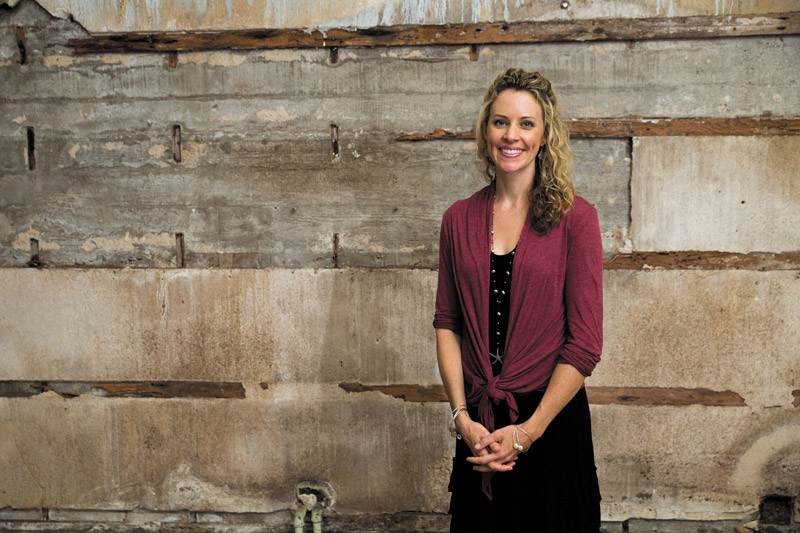
As a nurse practitioner, Jessica Munoz saw firsthand how traumatized child victims of sex trafficking are, so she set out to do something about it and formed Ho‘ola Na Pua
Picture this: a girl, 13 or 14 or 15, sold for sex by a pimp who calls himself her boyfriend. Somehow, finally, she manages to escape. She is taken to a safe place, a sanctuary in rural Oahu where she can live and heal, her damaged body and psyche treated by an understanding team of counselors, medical professionals and teachers.
This place, called Pearl Haven, doesn’t exist yet.
But it will.
Four women are making it happen, with the help of a whole lot of friends. They are the beating heart of Ho‘ola Na Pua, which means New Life for Our Children.
These four — Jessica Munoz, Tammy Bitanga, Kaleo Schneider and Jody Allione — have managed to steer Ho‘ola Na Pua from a tiny group of volunteers to a nonprofit on the brink of a huge accomplishment.
Pearl Haven will be a special treatment home for girls who are rescued from the trauma of sex trafficking.
They walked me through the rundown building on property recently acquired from the state. I took in the graffiti-ridden walls and broken windows. Shards of glass crunched under our feet. Weeds poked through cracks and water flooded the hallways through pukas in the ceiling. I saw an ancient, wrecked shell of a building.
They saw hope.
They described their vision for dining halls, kitchens, dormitories, treatment rooms, classrooms and gardens full of vegetables and flowers. Pearl Haven, they said, would be a sanctuary where girls can heal in safety and find their way back home to their families and communities.
THE FOUNDER
“I am a nurse practitioner,” Munoz says. “I was a former pediatric crisis nurse, so I had a lot of experience working with traumatized kids, as well as working in pretty intense environments.”
Munoz was working in a local emergency room when she became aware of the problem.
“Girls were being brought in,” she recalls. “Brought in by their pimps or by other girls that are within the ‘stable.’ Or they’d come in by themselves. You’re thinking, ‘something isn’t right here.’
“I’ve been trained in sexual assault and domestic violence and child abuse signs and symptoms, but I had no idea what I was seeing — that this was a situation of sexual exploitation of children.”
Munoz says she didn’t see it at first because, like most people in Hawaii, she didn’t think it was happening here.
“Oftentimes when we say the words ‘human trafficking’ people are thinking overseas.
They’re thinking of girls in Cambodia or Thailand or Korea,” Munoz explains. “But sexual exploitation and trafficking occur right here in Hawaii with our local children. It’s not just an international issue.”
Not only that, but the crime knows no boundaries or socioeconomic status.
” It could be a kid who lives in Section 8 housing or a kid who goes to private school,” she said. “We’re talking about a lot of kids.”
Munoz has a Master of Science in nursing, and in 2012 was the national awardee of the Emergency Medicine Physician Nurse Practitioner of the Year. She realized no one was identifying these child victims of sex trafficking in Hawaii.
“And once they’re in the health care setting, who do you call? What do you do? Where do they go? They seem like such basic questions.”
She set out to find answers. When she couldn’t find any, she decided to do something about it.
Munoz founded Ho‘ola Na Pua.
“I started in my living room with one other person,” she says.
She thought they were just going to be bringing awareness to the issue of trafficking. It’s become so much more.
THE MENTOR
For much of her life, Tammy Bitanga felt dirty. Useless. Good for one thing only: to be used by men.
Bitanga’s early life was marked by a series of betrayals by people she trusted.
The first happened when she was just 4 years old. A family member violated her and kept on raping her until she was 13.
The state moved her into a foster home. The family was wonderful, Bitanga says. But she had been damaged so badly that she couldn’t accept the safety of the home. She kept running away.
She took up with a girl who was working the streets in Waikiki. That’s how she met her “boyfriend.”
“He was pretty hot looking, pretty nice,” Bitanga says. “He gave me all the right words I wanted to hear. He scooped me up, took me to his apartment.”
She was 15.
The man “boyfriended” her. Told her he loved her. Gave her nice things. Filled the dark places inside her.
Now she knows what he actually was doing was recruiting another vulnerable young girl into what she calls “the lifestyle.”
She did not, at the time, think of it as a violent act — as rape — even though she was 15 and he was in his 30s.
“I was ready for the picking, and he picked me.”
She wanted to believe. So when he asked her to turn tricks she did it because she “loved” him. When he wanted her to go to Alaska to “work,” she did it because he made her feel safe. She did everything he asked because she knew in her heart she deserved no better. She was, after all, dirty.
“I was made to be used and abused,” she believed.
And nothing, she thought then, could wash away the stain.
Bitanga was able to escape from her pimp. She went back to high school and carved out a career for herself as an accountant. But she wasn’t healed. For years she led a double life — working in a law office during the day and going out on “dates” at night.
One day one of her friends said, “You know, you’re going to kill yourself if you keep doing this.”
Her friend was right and Bitanga knew it. She was tired of wearing a mask. She was tired of feeling dirty.
“I started going to church and I got healed. I had a different outlook.”
Ten years later she met Munoz, and found her life’s mission.
Bitanga is fully committed. She now heads Ho‘ola Na Pua’s Starfish Mentoring program for girls who have been trafficked.
“I’m passionate about it because when I meet these girls, I know how they feel. And so I’m able to say to them, know you’re valuable, know you’re beautiful, know you’re loved.”
THE EDUCATOR
Kaleo Schneider is responsible for spreading the word. Her official title is Education and Development Committee chairwoman.
She is very, very good at her job. I profiled her and her work a couple of years ago, and since then she’s spoken to thousands of kids.
“This year alone we did 2,000,” she says. “I go to do a one-hour presentation on what it looks like to be chosen as a trafficking victim in this state.”
Schneider says the response has grown dramatically, with educators now taking the initiative and having the entire school trained.
“The average age of kids we’re speaking to is between 15 and 17 years old. We also talk to parents. And I have principals and vice principals and administrators asking for presentations. In the past, it’s been students or teachers (doing the asking). So it’s gone from doing one or two classrooms here and there to doing full schools or whole grades.”
One of her most important messages? Watch what your kids are doing online. Everyone has a smartphone. The pimps will look for girls on social media. They’ll “like” their photos, tell them they’re beautiful, pretend they run a modeling or acting or music agency. Before the girls know it, they’re involved in something too big for them to handle.
Schneider, whose family owns Buzz’s Steak House in Lanikai, also is deeply involved in fundraising for the Ho‘ola Na Pua capital campaign.
THE ‘GO GET IT’ GAL
Jody Allione’s title is vice president of operations and site development.
“My responsibility was to get the site, and get it developed and permitted, and approved and designed and built. And I also run the operations of the organization, the finance and all the other stuff.”
Whew.
Allione’s day job was in energy development. She’s done large-scale energy projects throughout the state, so she was used to thinking big and getting things done.
Four years ago she went to a social justice conference in Australia.
“They were talking about social justice issues in the world, including sex trafficking on an international scale as well as on the domestic side. I had just vaguely heard about sex trafficking in Hawaii. I talked to some people there and they told me it was a big issue in Hawaii.” She came back wondering how she could get involved. She found Munoz, who told her, “We need a site.”
Allione replied, “That’s what I do.”
PEARL HAVEN
Allione got it done. The state granted a long-term lease and they now have all the required permits. She went to the community association to make sure they were OK with the project.
“They unanimously agreed to support it,” she says. And so did the neighborhood board.”
Allione is going from volunteer to full-time paid staff (she already was donating full-time hours) in order to oversee the Pearl Haven renovation project.
“Our goal,” said Allione, “is to raise $7.8 million. The hope is to start the renovations this year and (knock on wood) to open Pearl Haven in 2018.”
The sooner they complete the renovations, the sooner they will be able to offer children a place to shed their extreme anger, shame and resentment, and to heal in body, mind, spirit and emotion.
Before I left for the long drive back to town, I had become a convert. I no longer saw a rundown, decrepit structure; I saw the hope.
And these extraordinary women left me with some final thoughts.
Schneider: “Your kids are being chosen. Make a little time for a one-hour presentation about how they’re being chosen. Everybody is at risk.”
Bitanga (who no longer feels “dirty”): “As a community we can’t be thinking that the next person will do something. Everybody needs to take responsibility for our kids.”
Allione: Everybody can be involved with this effort because everyone has a skill we can use. I’m encouraging everybody to check our website. People can help in a small way or a large way with what they do best.”
Munoz: “Our community needs to care about restoring innocence to our children. We need to wrap our arms around these kids because, when we’re not there, they are falling through the gaps, being misidentified, being revictimized and continually being exploited.”
Right now the best way to “wrap your arms around these kids” is to get involved. You can start Oct. 8 with the third annual Pearl Gala. You can buy individual tickets or table sponsorships. Go tohoolanapua.org.
Be a part of a new life for our children.


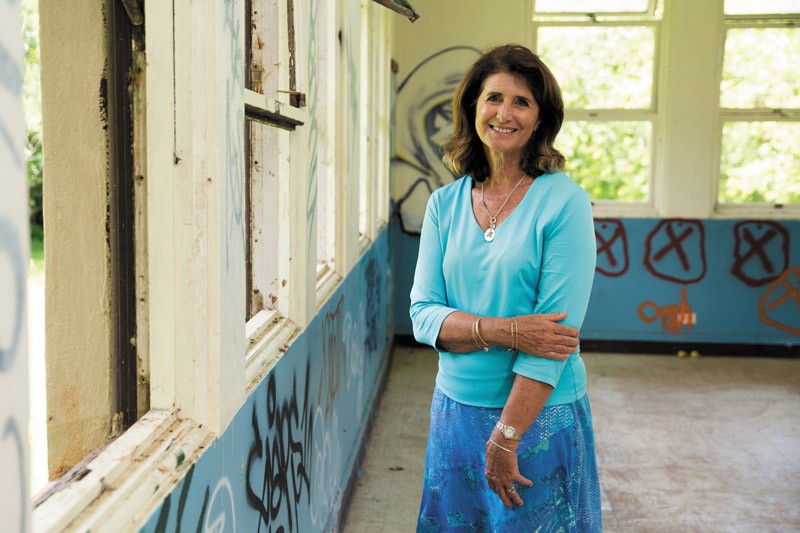
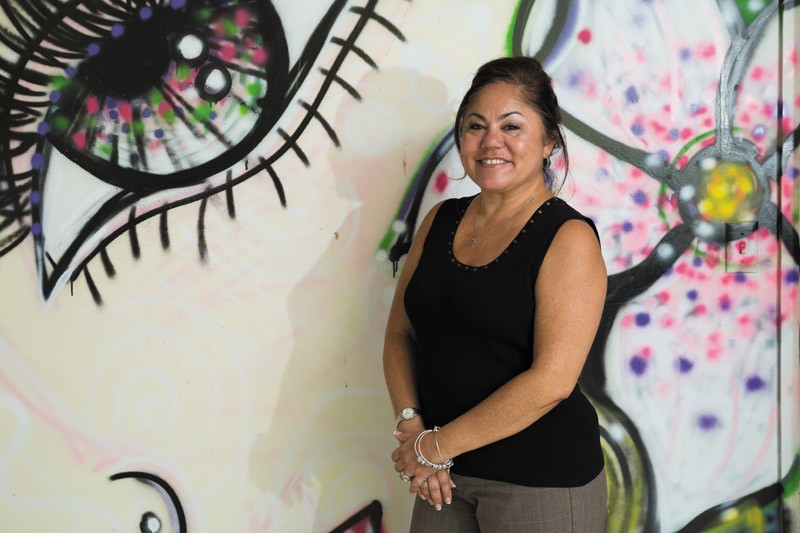
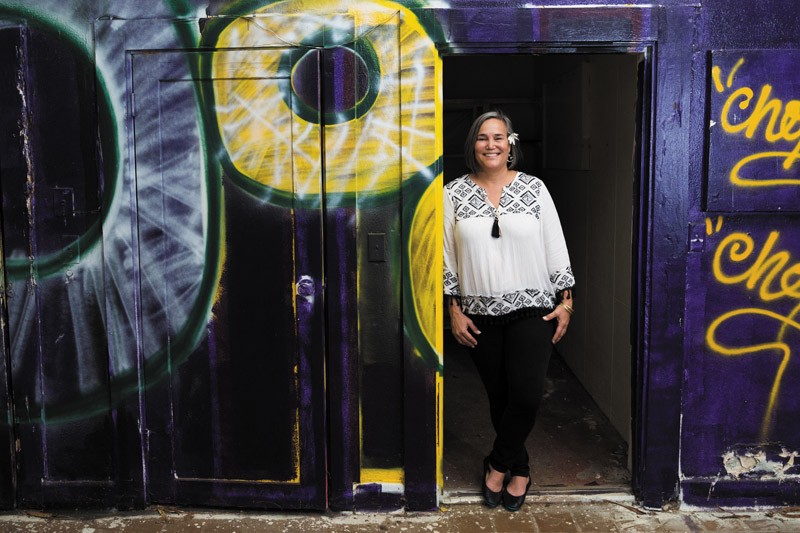
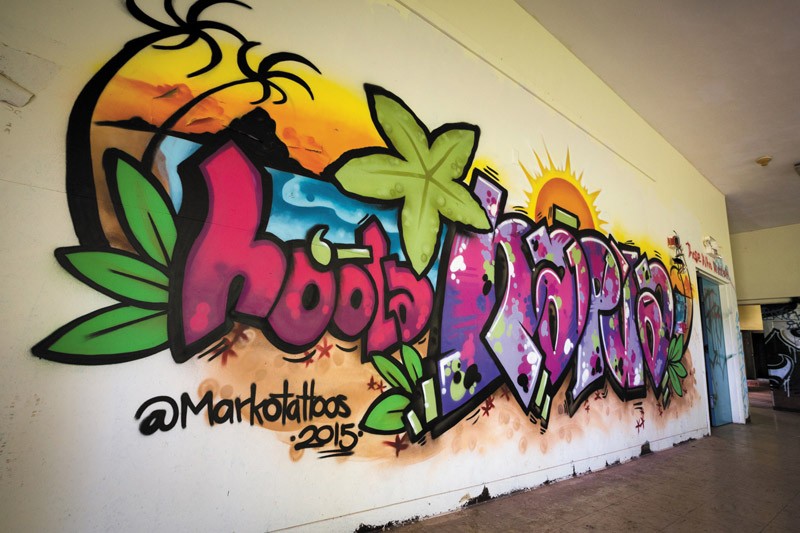
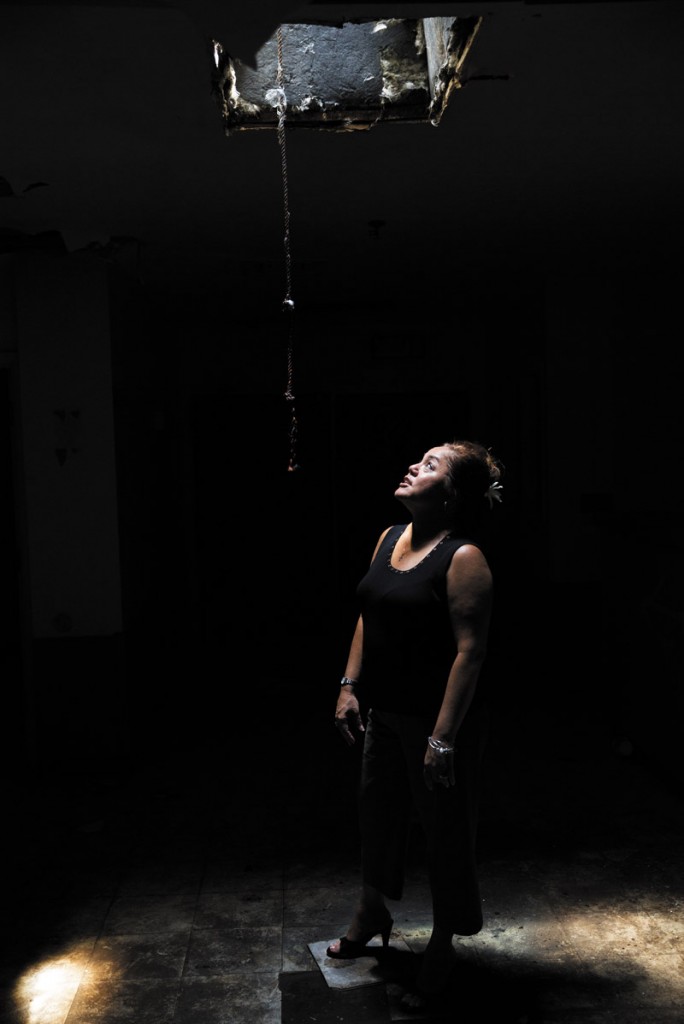
Comments on post (0)
Leave a comment